
Latest UK Funding Opportunities
Read on to find out about current funding opportunities to get support and help accelerate your business’ agri-tech aspirations

Read on to find out about current funding opportunities to get support and help accelerate your business’ agri-tech aspirations
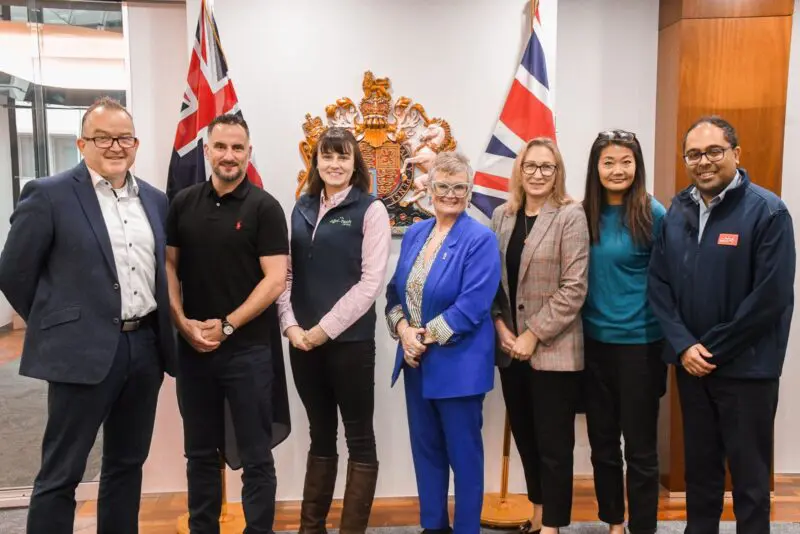
In June 2025, the UK Agri-Tech Centre embarked on a strategic mission to New Zealand, reinforcing our commitment to fostering international collaboration in agricultural innovation. Supported by the British High Commission and the UK Department for Business and Trade in New Zealand, the visit built on the 2024 Memorandum of Understanding signed with AgriTech New Zealand, opening new pathways for joint research, innovation and investment. Spanning two action-packed weeks, the programme included engagement with leading researchers, agribusinesses and innovation accelerators across Auckland, Hamilton, Palmerston North, Taupo and Tauranga. Central to the visit was our active participation in Fieldays®,the Southern Hemisphere’s largest agricultural event with a footfall of over 110,000 people, providing a platform to showcase UK capability and explore collaboration with one of the world’s most dynamic agri-tech ecosystems. James Kayam, International Business Development Manager at the UK Agri-Tech Centre, said: “New Zealand’s agri-tech sector is already a global player, combining deep farming heritage with digital innovation. Sharing cross-seasonality benefits, the UK and New Zealand both have maritime climates, fertile soils and a strong focus on producing high-quality food for demanding consumers. The UK has much to offer as a complementary partner, including access to our world-class science and research and a base for European markets and beyond. Through this visit, we’ve identified opportunities to work together on supporting Kiwi companies looking to do business or set up in the UK, identifying opportunities for UK companies in NZ and joint projects where we can work together in areas such as sustainability, automation and animal health.” Highlights from the visit During Fieldays, the UK Agri-Tech Centre engaged with key stakeholders including Fonterra, AgriZeroNZ, Plant and Food NZ, Bovonic and Horticulture New Zealand.Conversations focused on co-developing solutions for sustainable intensification, precision livestock management and low-emissions farming. A highlight was the UK Government-sponsored “Connected for Growth” event in which Carolyn Harris MP (Trade Envoy to New Zealand) gave an address to the Fieldays audience. The event included a panel discussion, where Dr Bethan John, the UK Agri-Tech Centre’s Animal Health Specialist, joined global expert leaders to discuss the power of innovation and collaboration in shaping the future of Agri-Tech. Beyond the Fieldays event, site visits further enriched the mission, which included: Sprout Agritech, New Zealand’s premier agrifood-tech accelerator and its portfolio company BioLumic, whose pioneering UV crop treatments have transformative potential. TCS NZ Ltd, developers of automation and digital process control solutions with ambitions to enter the UK market. EKO360 Tnue, whose controlled-release fertiliser technology is helping farmers improve nutrient efficiency while reducing environmental impact. Cucumber, who are combining custom software development, biosensing innovation and digital strategy to help businesses make smarter, data-driven decisions. Bluelab, a leader in horticultural automation and sensing tools, empowering growers with precision control over their growing environments. Robotics Plus, an agri-tech innovator developing autonomous vehicles and smart automation solutions to tackle labour shortages and boost productivity in horticulture and forestry. Zespri International, the world’s largest kiwifruit marketer, whose scale, innovation and global reach are a testament to New Zealand’s horticultural leadership. Dr Bethan John, Animal Health Specialist at the UK Agri-Tech Centre, said: “What stood out throughout our time in New Zealand was the openness to collaborate and the clear alignment in goals—particularly around animal health, food system resilience and sustainability. There’s strong potential to co-create solutions that can collectively benefit farmers, consumers and the planet.” Collaboration to address real-world challenges The visit also provided opportunities to address sector-wide challenges, from labour shortages and climate adaptation to regulatory alignment and farmer adoption of new technologies. Shared values around responsible innovation, One Health and digital transformation were central to many discussions. As we return to the UK, the UK Agri-Tech Centre remains focused on progressing conversations with our New Zealand counterparts. Whether through joint R&D, market entry support or innovation exchange, we are excited to translate dialogue into action—fostering impactful partnerships that support global agricultural resilience. Thank you to all the individuals and organisations who hosted, collaborated and shared their insights. We look forward to the next chapter of agri-tech collaboration between the UK and New Zealand. If you would like to learn more about this visit, international knowledge change or have any questions, please get in touch via info@ukagritechcentre.com
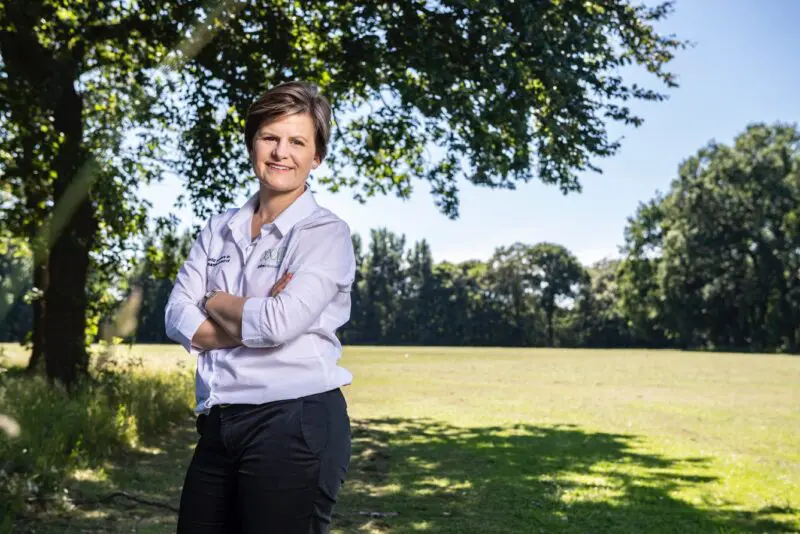
The UK Agri-Tech Centre has welcomed the UK Government’s recognition of agri-tech as a key ‘frontier’ industry within Advanced Manufacturing, outlined in its Industrial Strategy. It also recognises the sector’s role to deliver ambitious growth, enhance productivity, strengthen climate resistance and reduce the emissions from agriculture. A strategic vision The Strategy, published today (June 23) identifies the high-potential industries that develop and commercialise strategically important technologies and describes how the Government will support their development and growth. It highlights eight priority sectors, with Advanced Manufacturing – encompassing agri-tech – among them. Another key frontier industry is Digital & Technology, which includes Engineering Biology, covering precision breeding supported by a secondary legislation that passed in the House of Commons on May 13, 2025. Fuelling innovation across the sector The Strategy is a ten-year plan committed to the promotion of free and fair trade through strong international partnerships and the reduction of regulatory burdens, speeding up the development of innovation, including via the Regulatory Innovation Office. It also acknowledges the importance of UK-wide expertise and commits to supporting a nationwide approach to targeting areas across the UK that support the sectors included in the Industrial Strategy. Alongside the Strategy’s publication, Defra has also confirmed its commitment to invest £200 million into the Farming Innovation Programme through to 2030, aiming to help unlock the potential of the agriculture sector. The UK Agri-Tech Centre’s CEO, Hannah Senior said: “We welcome the UK Government’s recognition of agri-tech as a frontier industry to deliver on ambitions for growth, to boost productivity, build climate resilience and reduce emissions from agriculture. The UK Agri-Tech Centre has a successful record of supporting government ambitions in these areas and has already made an impact in driving company growth and industry adoption. Our nationwide capabilities and deep sector-wide expertise now have even greater potential to be maximised via this Strategy and we shall continue to work with Government, its agencies and the sector to bring it to fruition. We also welcome the Strategy’s ten-year scope: agri-tech requires forward thinking on behalf of innovators and investors, but there are long-term dividends for the economy and society from its successful creation and deployment. The Strategy’s commitment to promote free and fair trade is also critical: there are significant global production needs, but also opportunities. The UK Agri-Tech Centre has established connections in international markets and is therefore well placed to deliver on these ambitions. We also welcome the Government’s recognition of the role of a regulatory environment that is conducive to innovation. We are working with the Regulatory Innovation Office and are actively working on unlocking opportunities around regulation for automation & robotics and insect bioconversion. It is encouraging to note the Government’s recognition of the importance of nationwide expertise via strategic clusters; we are proud of our UK-wide suite of cutting-edge facilities and expertise to support the test, trial and adoption of agri-tech innovation – successfully delivering solutions through to commercialisation. Finally, we welcome Defra’s commitment on the back of the Strategy’s publication to allocate £200 million in FIP up to 2030 to support the homegrown adoption of technology that can make a real difference on farms in England and Wales, supporting productivity and resilience in the agricultural sector and the agri-tech companies whose products can enable this.” To find out more about the Industry Strategy or how the UK Agri-Tech Centre is supporting the growth of the agriculture sector, please get in touch via info@ukagritechcentre.com
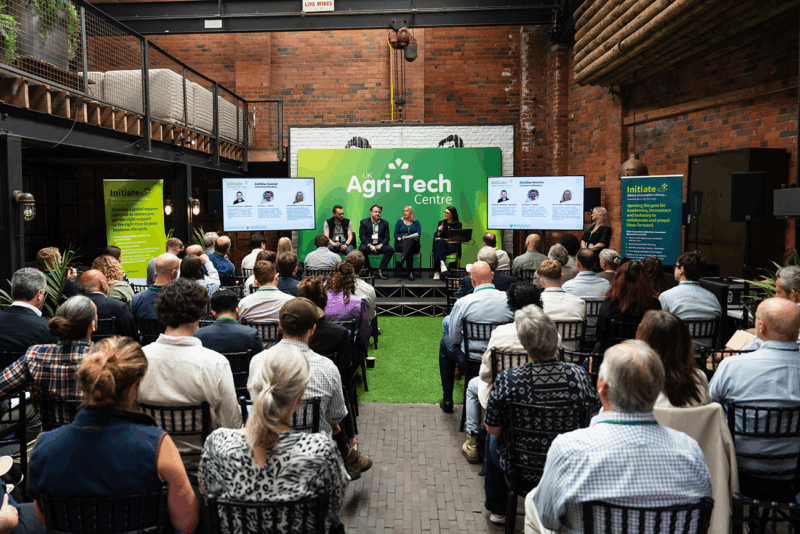
The UK Agri-Tech Centre hosted its inaugural flagship event, Initiate, in Birmingham on June 17, bringing together a diverse range of start-ups, SMEs, corporates and industry professionals from across different sectors within the innovation ecosystem. Initiate acts as a launchpad to spark new ideas, fresh collaborations and meaningful conversations that could shape the future of agri-tech. The key objectives of the day were to put emphasis on being a cohesive and collaborative ecosystem, showcasing how, by coming together from our different areas of expertise, we can make a direct impact on the sector. Initiate is designed to create a network that ensures innovators across the ecosystem can get the right support at the right time, helping them transform and elevate their ideas into scalable solutions that address real-world challenges across the agri-food sector. Morning panel sessions: Ideation to commercialisation The morning featured ‘In Conversation with’ panels – Seed, Germinate and Fertilise – sponsored by Innovate UK ICURe, Satellite Applications Catapult and Barclays. These sessions offered attendees the opportunity to hear directly from entrepreneurs and experts who have successfully navigated the journey from start-up to scale-up and entering the world of commercialisation. Key takeaways: Prepare to be agile in a constantly evolving landscape Getting the right support at the right time is crucial Collaboration is important but it is critical to choose the right strategic partners Ideas are only as strong as their execution Regulations, misalignment of funding cycles and working in isolation can be a challenge, so identifying timelines and resource requirements early makes a difference Afternoon workshops: Opening the gate to open innovation Discussions continued into the afternoon, transitioning into workshops that focused on open innovation. These sessions encouraged collaborative discussions between academics, innovators and industry leaders to frame real challenges, propose solutions and explore how emerging technologies can be leveraged to drive progress. Panel 1: Entrepreneurial mindset – The key to making connections and driving mutually beneficial collaboration This session highlighted the need for focus. The advice given was to break down your technology offering into value-chain or operational silos, understand your data needs and deliver a compelling value proposition to your end-user. Panel 2: Gaining competitive advantage – Ensuring you have the right model to scale your business This session highlighted the vast array of research and connectivity that a scaling business needs to undertake before pressing forward to commercialisation. It emphasised the importance of research, validation and finding the right strategic partners. Panel 3: Strengthening the ecosystem: Supporting agri-tech Innovation from the ground up This workshop reinforced a clear takeaway – we are not short of great ideas, but it is essential to have the right infrastructure, including people, platforms and partnerships, to build an agri-tech system that is smarter, faster and well-connected. Wendy Hewitson, UK Agri-Tech Centre’s External Engagement Manager, summed up the day saying: “Initiate truly lives up to its name. We’ve sparked a powerful network of networks and the next step for us is to ensure that we keep the momentum going. Watch this space for future updates!” Looking ahead Initiate showcased how fertile the agriculture sector is. It highlighted the potential for cross-sector innovation, where ideas from other industries can be adapted, refined and applied within the sector. It aims to encourage fresh thinking, new value streams and enable companies to become more agile and adapt to fit future regulatory shifts, climatic changes and external pressures. The UK Agri-Tech Centre is a key player in supporting the future of the agriculture sector. Events like Initiate play a crucial role in building a resilient and collaborative ecosystem that supports the scale-up of innovative companies and technologies and we’re looking forward to hosting the next iteration. If you are interested in learning about how you can be involved in the evolution of the agriculture sector or want to learn more about the Initiate event, get in touch via info@ukagritechcentre.com
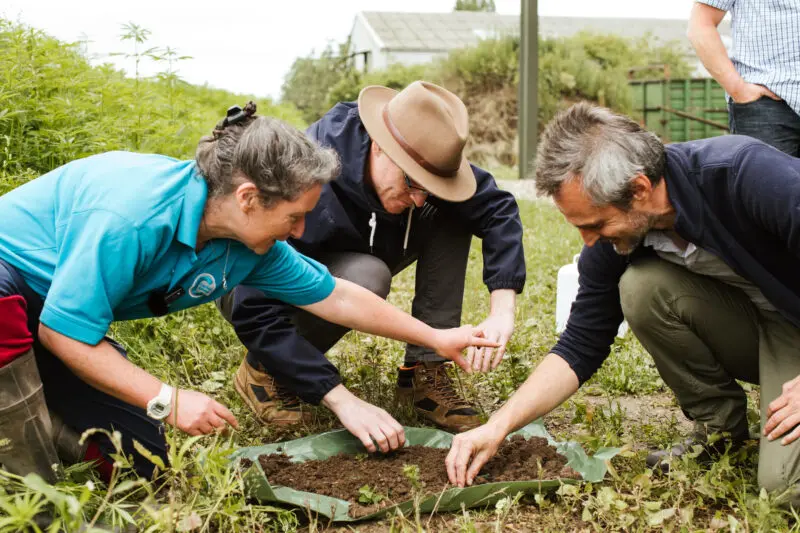
More information has been released about the ADOPT Fund, including confirmed funding rounds, timescales and how farmers can make the most of this opportunity. This initiative, part of the Farming Innovation Programme funded by Defra and delivered by Innovate UK, aims to support farmer-led research and development projects with significant funding and expert guidance. It offers farmers, growers and foresters in England the opportunity to trial and test practical solutions to on-farm productivity and sustainability challenges. The next round of funding has been announced and it offers farmers the chance to apply for additional support for their innovations – however applicants have until June 25, 2025, to apply for the Full Grant Round 1 of funding. What is ADOPT? ADOPT stands for Accelerating Development of Practices and Technologies and is designed specifically for farmer-led innovation, helping farmers turn their ideas into practical trials. The fund provides two types of grants: Support Grants: Up to £2,500 to help develop ideas and bring in expert facilitators Full Project Grants: Between £50,000 and £100,000 for farmer-led projects Farmers can apply directly for a full grant or start with a support grant to develop their ideas first. Why ADOPT Matters ADOPT focuses on testing and trialing ideas or solutions that are either new or not yet widely used. It encourages farmer-led collaboration, working with other farmers, advisers, researchers and partners to significantly improve productivity, resilience and sustainability. The fund aims to demonstrate to other farmers, growers or foresters how these innovations can benefit them through on-farm trials with clear goals and measurable outcomes. What’s open now? Round 1 includes a full grant option for farmer-led, on-farm projects between £50,000 and £100,000, which closes June 25, 2025. Multiple rounds of both Support and Full Grants will run through the rest of 2025 and into early 2026. Facilitator Support Grant Round Opens Closes Round 2 June 12, 2025 July 23, 2025 Round 3 July 24, 2025 September 2025* Round 4 September 2025 October 2025* Round 5 October 2025 November 2025* Full ADOPT Grant Round Opens Closes Round 2 June 26, 2025 August 20, 2025 Round 3 August 21, 2025 October 2025* Round 4 December 2025 February 2026* Round 5 To be announced — *Dates subject to change You can apply for a Support Grant and Full Grant in the same or different rounds, depending on what works best for your timeline. Full details and updates can be found on the Farming Innovation Programme at https://farminginnovation.ukri.org/adopt/ The ADOPT Support Hub is a consortium that brings together a diverse range of expertise and resources to support farmers throughout their ADOPT-funded projects. The consortium includes: UK Agri-Tech Centre: Provides cutting-edge agricultural technology and innovation to support on-farm trials and research ADAS: Offers expert advice and consultancy services in agriculture, helping farmers design and implement effective trials Innovative Farmers (part of Soil Association): Facilitates farmer-led research and collaboration, promoting sustainable and organic farming practices The Support Hub offers free and fully-funded expert guidance and advice, helping farmers develop their project ideas, apply to ADOPT, find collaborators and share results to maximise impact. Thomas Slattery, Farming Innovation Support Manager at the UK Agri-Tech Centre, said: “The consortium is here to help you every step of the way and we want farmers to benefit from as much help and support as possible to benefit the industry. We offer one-to-one advice from real people, help with understanding the eligibility and can give feedback on draft applications. Help is available to make the process as smooth as possible and enable farmers to benefit from this support. The consortium can connect applicants to facilitators, collaborators and events, whilst offering support with webinars, FAQs and practical guidance.” Tips for applicants There are multiple rounds throughout the year and into 2026, so potential applicants have time to consider their options if they are not ready straight away. Applicants should save their answers outside of the system if they have already started an application, as any unsubmitted forms won’t carry over. Whilst you can go straight to apply for a full grant, there is an optional support grant available to help with the process, which often helps to build a stronger case. For more information about the ADOPT Fund and Support Hub visit https://farmpep.net/adopt/front or contact them on 0800 9878006 or adoptsupport@adas.co.uk
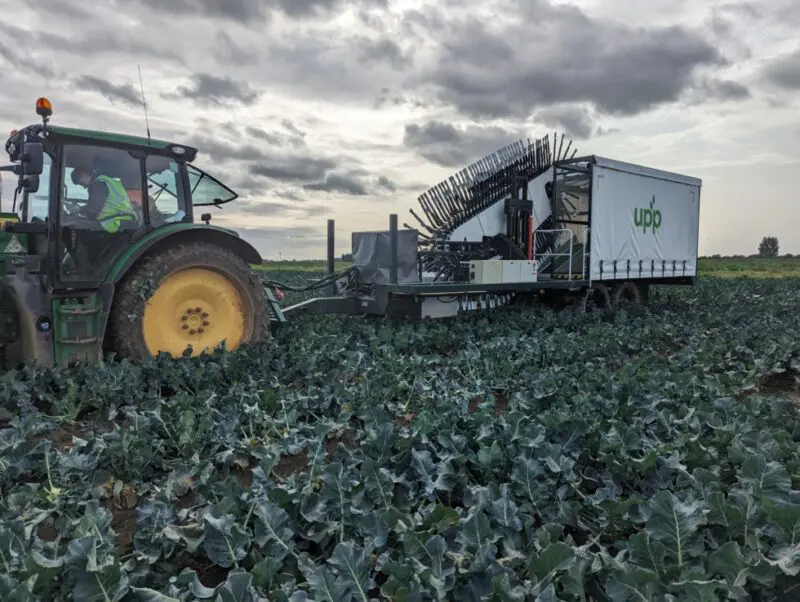
We know how challenging it can be for SMEs at a relatively late stage in the R&D process to secure funding. Meeting investors who have a track record in investing in start-ups at this point is critical. In response to this difficulty, Defra and Innovate UK have launched the second round of their highly successful Innovation Investor Partnership. From Monday, June 2, UK-registered SMEs developing agri-innovation will be able to apply for a share of up to five million pounds. According to the Investor Partnership rules, this “must be aligned with private investment from selected investor partners”. Participants could also get the opportunity to pitch their business to a large pool of engaged investors. The competition opens on Monday, June 2, 2025 and closes on Wednesday, July 2, 2025, at 11am. The competition aims to: Develop ambitious late-stage innovative solutions, technologies, systems or approaches that will make significant steps towards improving productivity, profitability, increasing sustainability and resilience; Help the agriculture sector move towards achieving Net Zero emissions by 2050; and Support the commercialisation of late-stage experimental development projects that are close to market and ultimately their adoption by farmers. Proposals must demonstrate how the project will benefit farmers, growers or foresters in England. UPP, which operates out of the UK Agri-Tech Centre’s Midlands Hub was successful in the previous round of the Investor Partnership, securing over £350,000 in grant funding from Defra, and more than £700,000 in private investment. The UK Agri-Tech Centre’s Business Growth Manager and agri-tech investment specialist, Jos Lovegrove-Fielden said: “This is a real opportunity for businesses to meet a selected pool of engaged investors and in parallel, bring in grant funding if successful in securing investment. “The Investor Partnerships programme provides a unique vehicle to accelerate businesses from concept and start scaling. Many companies that we work with should be encouraged to apply. “If you are a business beginning to look at a late seed or Series A round, please consider looking.” For more information, click here. For a full list of participating investors, click here. A webinar for interested SMEs will take place on Thursday, June 5, at 11am: Register now. If you would like to know more about this Farming Innovation Investor Partnership or any other current funding opportunities, please get in touch via info@ukagritechcentre.com
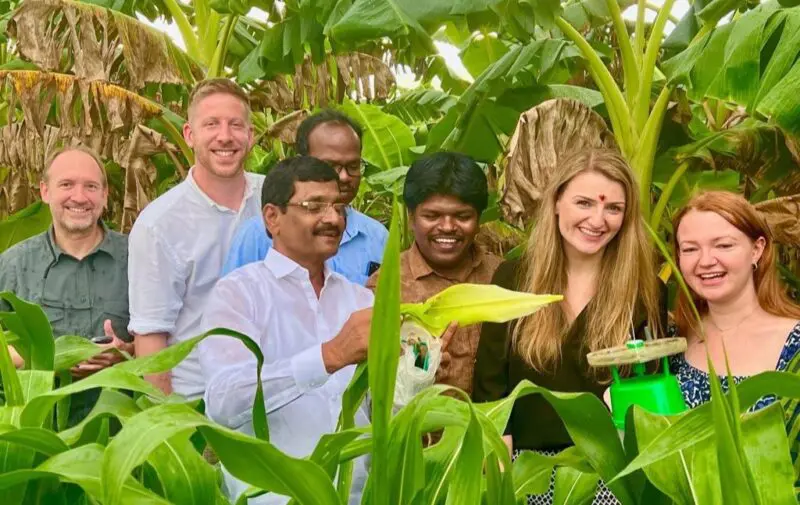
Find out about current international funding opportunities to get support and help accelerate agri-tech aspirations
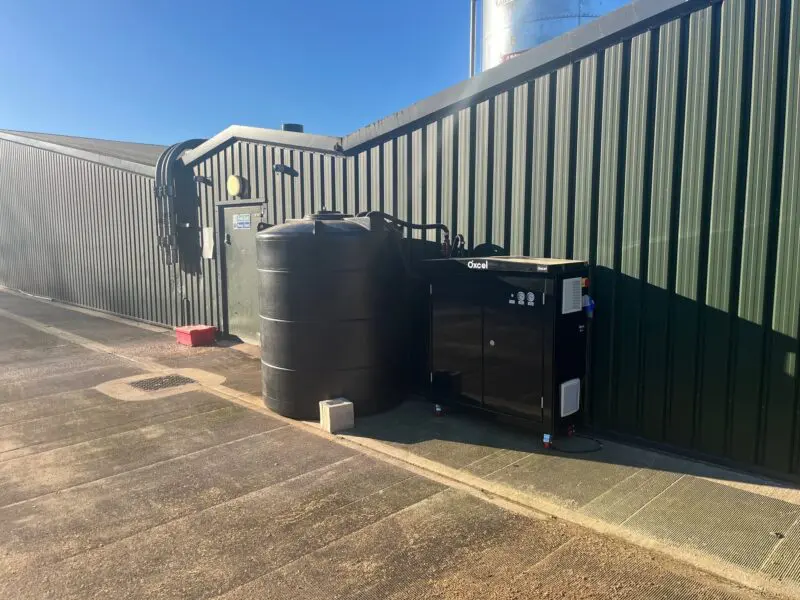
An innovative project that utilises enhanced water technology to boost efficiency and productivity across the livestock industry is gaining momentum.
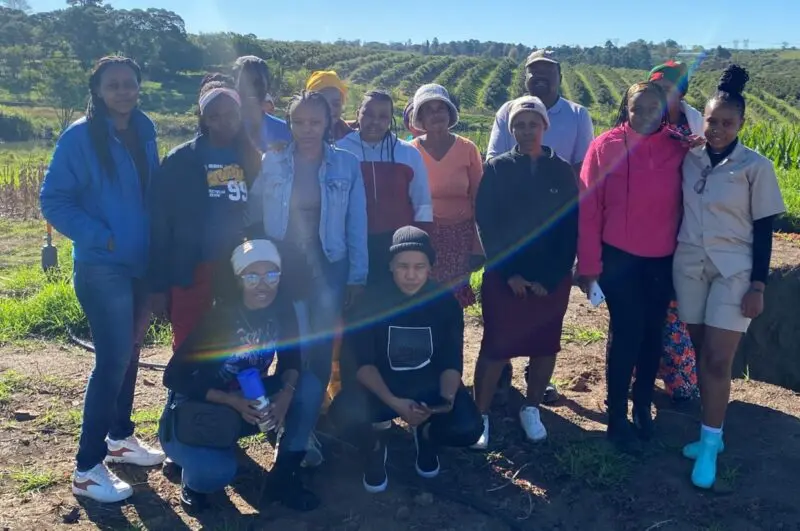
The SWEET SUCCESS project responds to the bio-energy demand and the net zero transition, to increase yields of bio-energy crops, subsequently aiding energy generation, whilst not compromising land-use for food and housing.
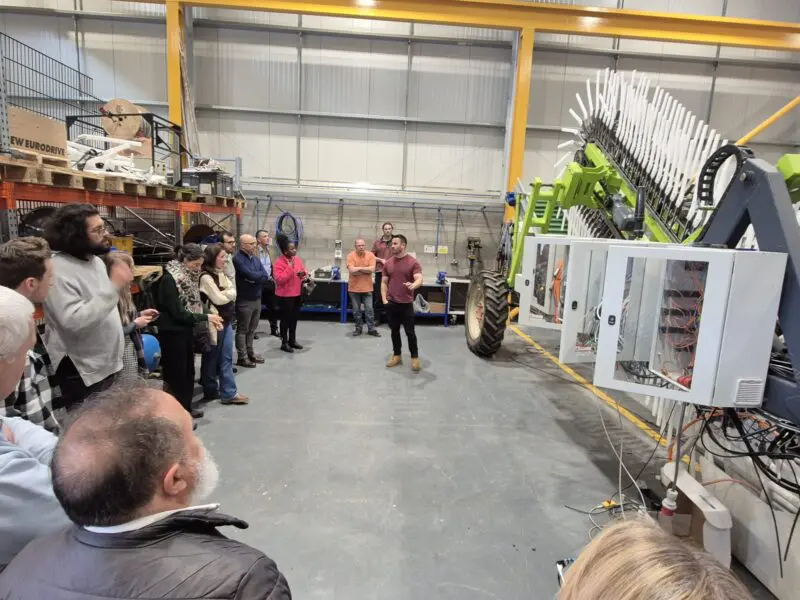
The UK Agri-Tech Centre is delighted to announce the signing of a Memorandum of Understanding (MOU) with the Spanish National Research Council (CSIC), through its Institute of Natural Resources and Agrobiology of Salamanca (IRNASA-CSIC), which will help to advance agri-tech innovations and provides a framework for bilateral collaborations that address global agricultural challenges. The MOU underscores the two organisations’ mutual dedication to promoting agri-tech development, facilitating collaboration and driving forward industry advancement. Both the UK Agri-Tech Centre and the CSIC bring unique strengths to the collaboration projects, leveraging the UK’s expertise that includes precision agriculture, climate-smart technologies and animal health, alongside Spain’s innovations in agroforestry systems, sustainable inputs and renewable energy applications. The vision is to bolster business growth, innovation, research and collaboration in the agri-tech sector—solidifying a shared commitment to addressing global agricultural challenges and enhancing sustainability through joint initiatives. Key areas of collaboration include: Sustainable Agriculture and Climate Resilience Precision Agriculture Digital Agriculture Agri-Food Innovation Knowledge Exchange Linsey Cresswell, Head of Strategic Partnerships and International at the UK Agri-Tech Centre, said: “This Memorandum of Understanding represents a significant step forward in fostering international collaboration to drive meaningful innovation in agri-tech. Together, we aim to build financially viable, resilient and sustainable agricultural systems to address the challenges of climate change and food security.” Mar Siles Lucas, Director of IRNASA-CSIC, said: “This partnership with the UK Agri-Tech Centre demonstrates our shared vision of advancing scientific and technological research to benefit society and the environment. By working together, we can achieve impactful results for both nations and beyond.” Shona Brown, Senior Trade and Investment Adviser at the British Embassy, Madrid, said: “I am delighted to see that the close collaboration between Irnasa-CSIC and the British Embassy in Madrid has contributed to the signing of an MOU which underlines commitment to work closely with the UK Agri-Tech Centre and develop mutually beneficial R&D and commercial opportunities between the UK and Spain.” This closer way of working can only bring positives and encourage solutions to the challenges the agricultural industry is facing, especially within the current climate. It also supports market entry strategies for businesses in both countries and further strengthens the agri-tech sectors in the UK and Spain. For further information about this Memorandum of Understanding, please contact James.Kayam@ukagritechcentre.com or visit www.ukagritechcentre.com to find out more about the work the UK Agri-Tech Centre does.
We’re focused on all areas of crops, livestock and engineering and exploring new sectors within food, feed, fuel and fibres.
Join a diverse community from industry and science, committed to transforming UK food and farming. Doing better for businesses, the future of the agri-food sector and the planet.
We welcome all enquiries, fill in the form and we’ll be in touch.
© Copyright the UK Agri-Tech Centre Ltd. 2025